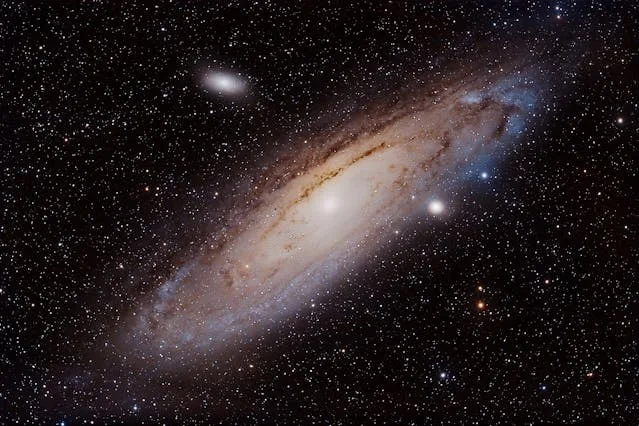For over a century, scientists believed that the Milky Way and Andromeda galaxies were on a direct collision course set to occur in 4.5 billion years. But new research suggests that this long-assumed fate of cosmic destruction is far from guaranteed.
Even though the two galaxies are hurtling toward each other at 360,000 km/h, updated observations from the Hubble and Gaia space telescopes tell a different story.
Using these latest datasets, astronomers ran 100,000 simulations of the Local Group—the cluster of galaxies that includes the Milky Way, Andromeda (M31), the Large Magellanic Cloud (LMC), and the Triangulum Galaxy (M33). The results are surprising: there’s only a 2% chance of collision in the next 4–5 billion years, and a 50% chance over the next 10 billion years.
What’s changing the odds? The gravitational pull of nearby galaxies. The LMC appears to be slightly pulling the Milky Way away from Andromeda, while M33 is dragging Andromeda closer. This gravitational tug-of-war reduces the likelihood of an imminent merger.
If a collision does happen, the result would be a massive elliptical galaxy, stripping away the iconic spiral arms of both. But even in such a galactic crash, stars almost never collide—so Earth wouldn’t be immediately threatened.
Ironically, the more likely interaction may come from the LMC itself, which could merge with the Milky Way in just 2 billion years, disturbing its core and possibly affecting its supermassive black hole.
Still, the biggest danger to Earth remains the Sun’s own life cycle. In about 5 billion years, our star is expected to swell into a red giant, potentially engulfing the Earth.
As scientists put it: “The death of the Sun is certain. The end of the Milky Way is not.”


